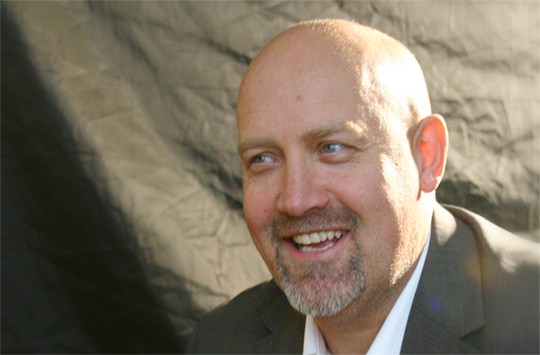
So, tell us a bit about Blood Tears…
DI Ray McBain is called to a murder scene where the body has been marked post-kill with the wounds of the stigmata. All clues lead back to a catholic orphanage where McBain spent his formative years. He doesn’t divulge this information to his superiors and continues on the case. And then the dreams begin…
His behaviour becomes increasingly erratic and McBain himself becomes the main suspect. He is arrested and charged and goes on the run to prove his innocence. But on his escape, the body count begins to rise, making his pleas of innocence difficult to believe.
How does it feel to have your debut out in the world at last?
Wonderful. And scary. From being confident I had produced a good read for people, I find myself questioning every word and wondering who on Earth would want to read it.
Blood Tears is steeped in Catholicism, do you share McBain’s lapsed faith?
Yes, but as one character in the books says, “Once a Catholic, always a Catholic.” I get religion and understand why people feel they need it. Unfortunately, mankind has a long habit of taking ideals, organising people around them and making an utter mess. While I was writing Blood Tears there were a great number of people who were seeking redress from the Catholic Church for the treatment they received while they were at their most vulnerable. When you witness the behaviour of people whose actions are sanctioned by such an organisation it tends to sour your view of them. Having spent a short number of years in such an environment I could empathise with the people who were taking them to court. But I was one of the lucky ones. I got home on holidays and weekends. And my treatment was never that vicious.
McBain ends up on the wrong side of the law. As a writer did you feel the need to kick against the establishment nature of the police through him?
If it appears that way, it wasn’t intentional. It was more an attempt to play with the tropes of the police procedural. The investigator becomes the investigated. I think the men and women who protect us within each of the emergency services in the main do a fantastic job. Society would be a much more difficult place without them. We all owe them a great deal of thanks in my humble opinion.
You’re a rather talented poet on the quiet – how do you find that affects your prose style?
Initially it dragged it down. I was so busy trying to come up with dazzling prose and arresting images that I was doing it at all the wrong times. However, once I got a handle on it, I found all those hours of writing poetry a boon when writing prose. Every word in a poem has to earn its space. Words don’t tend to get wasted. A lot can be said in just a few words. All of which helped to add atmosphere to the book. I also liked the use of more poetic language when ‘speaking’ from the killer’s point of view. I enjoyed the juxtaposition of that lyrical style when expressing the mind of a cold-hearted killer.
And your tenure as poet-in-residence at a sex shop… any inspiration from that direction?
Aha – none at all. It was too brief. And bizarre, frankly. My poems were done in a fine calligraphy, framed in nice wood and pinned to the wall behind the dildos. But I did ‘get’ what the owner was trying to do. She thought that the biggest turn on came from our use of our brains and she wanted sensual words rather than out-and-out porn to give her shop a wee bit of class. As I said, it was brief, but it does looks interesting on the CV.
What’s coming up next for you and McBain?
A complete change of direction from me – I have a book coming out in the Autumn called Carnegie’s Call. It’s a non-fiction title talking about success and happiness through the examples of some of the most successful individuals in the country.
As for McBain, if I tell you, I’ll have to kill you. It all depends on whether he gets out of the events of Blood Tears still a member of his profession. You’ll have to wait until book two comes out next year to find out.
You can grab Blood Tears on Amazon. If you read it, let us know what you think.